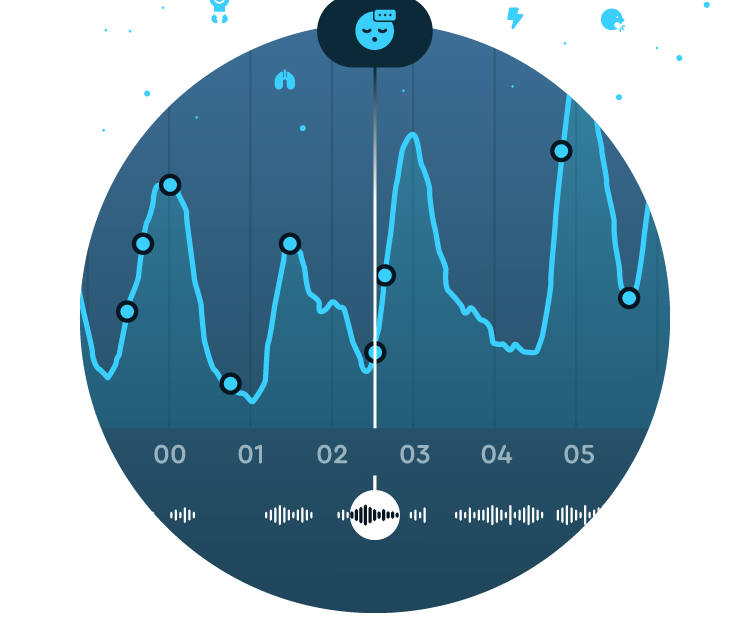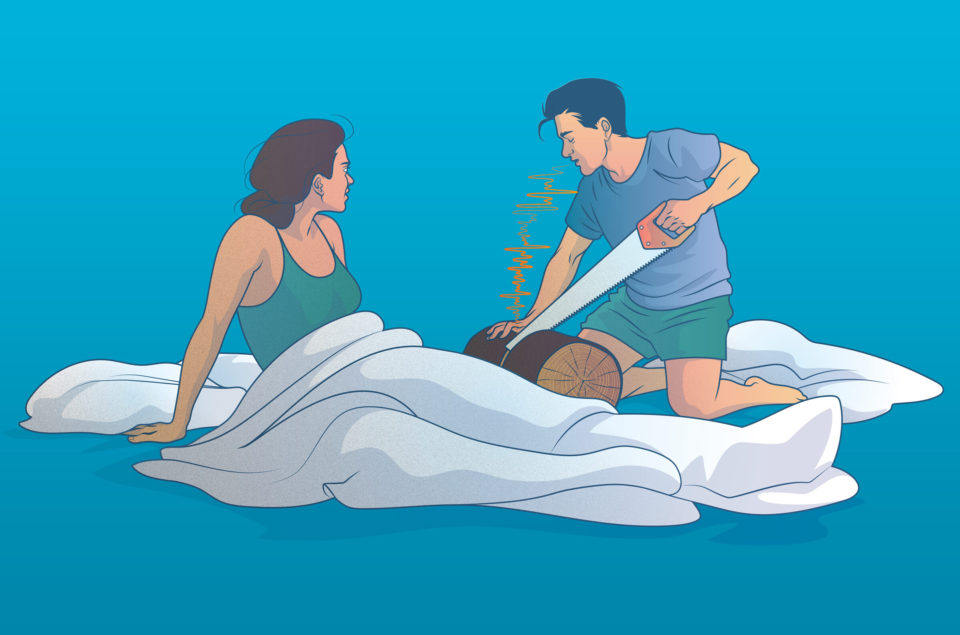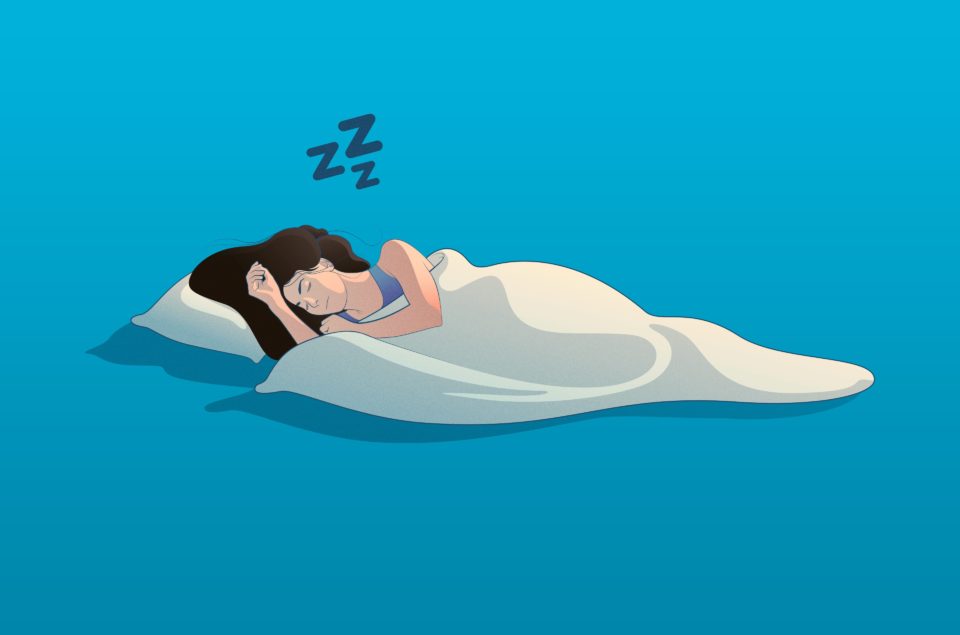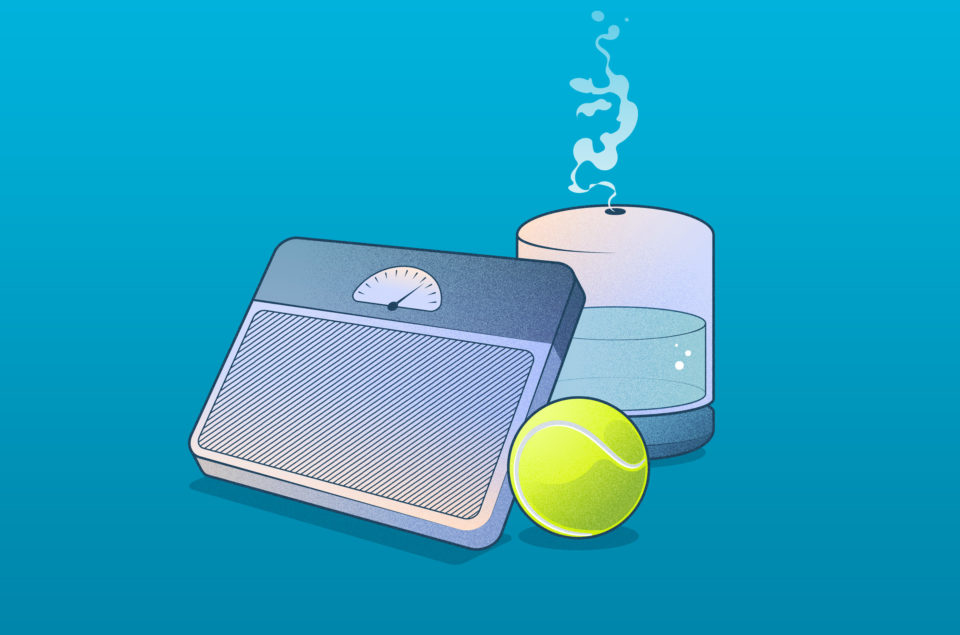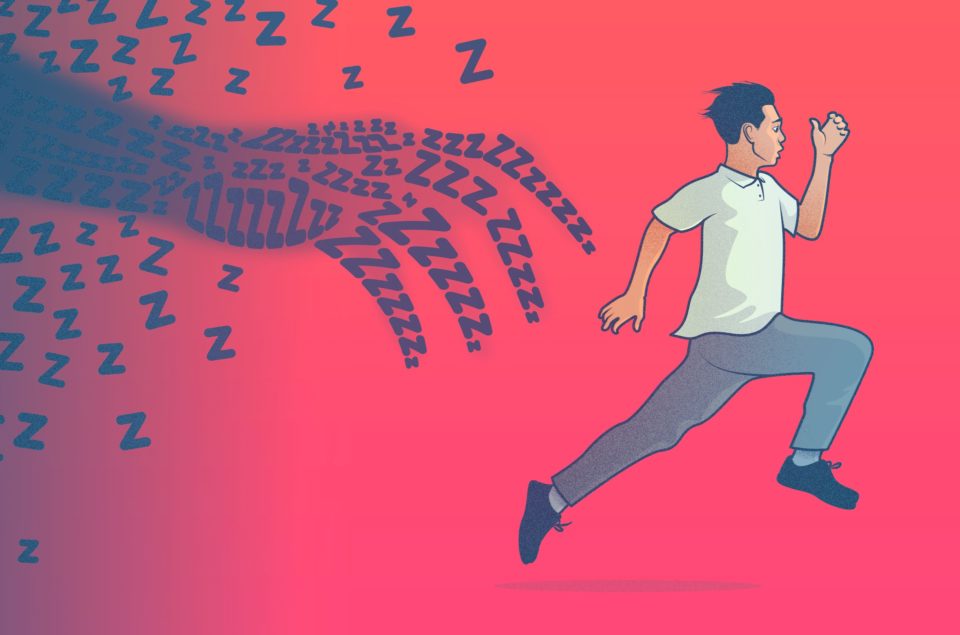Know if you snore
About half of all people snore at some point in their life, with the majority of them being men. In fact, over 40 percent of all adult men are habitual snorers. Health risks associated with snoring include sleep apnea, interruption of breathing, frequent wake-ups, light sleeping, high blood pressure, heart strain, and overall poor sleep quality. Common symptoms include; daytime sleepiness, headaches, and mood swings. All of which can be traced back to a number of different causes and can be very tricky to relate back to snoring, without the assistance of a sleep expert.
Identifying that you snore is the first step. Unless you share a home with someone who can inform you if you snore, chances are slim you will ever find out if you do. Until recently, when Sleep Cycle snore tracker was launched. Sleep Cycle snore tracker will help identify the sound of your snores and measure the effect snoring might have on your sleep quality.
Next step involves taking action to make sure your snores won’t have a long-term effect on your sleep quality and overall health. Finding a way for prevention and tools to follow up on measurements taken is key.
How to stop snoring
- Change your sleep position. Snoring is more likely to occur if you sleep on your back. Sleeping on your back causes your tongue and soft palate to collapse to the back of your mouth. Instead, try sleeping on your side. Besides using the old trick of tennis balls in your pajama shirt, pillows behind your back can also help keep you positioned on your side.
- Slim down. Tests have shown that people who are overweight are more prone to snoring. Fat tissue and poor muscle tone cause excess weight around the neck and chest, which can inhibit ease of breathing. Slimming down or strengthening your muscles can go a long way if you want to stop snoring. Be mindful of your diet, walk 10,000 steps daily as recommended by health professionals, and implement two to three 30 minute strength exercise sessions a week and you will be well on your way.
- Avoid alcohol and smoking. Smoking and alcohol can lead to increased muscle relax, which in turn is known to cause snoring. If you can’t stop, try cutting down over a period of time and avoid alcohol all together right before bed. We would be surprised if you don’t see a difference.
- Nasal and sinus problems. Coming down with a cold? Chances are you will snore. Try using a nose spray or put an extra pillow under your head to avoid blocked airways.
- Change your pillows. Allergens in your bedroom might be causing you sleep problems. When was the last time you vacuumed under your bed? Or removed the dust on your ceiling fan? Changing your pillows often and making sure your bedroom is dust free is very important. This will help you avoid nasal and sinus problems.
Next steps
- Try out the new Sleep Cycle update and see if you snore.
- Give some of the options listed above a go and see if they help.
- Is nothing helping and do you still find yourself feeling sleep deprived? Seek professional advice. Have your house doctor refer you to a sleep specialist. Your partner will thank you. Life’s too short to be sleepy!

